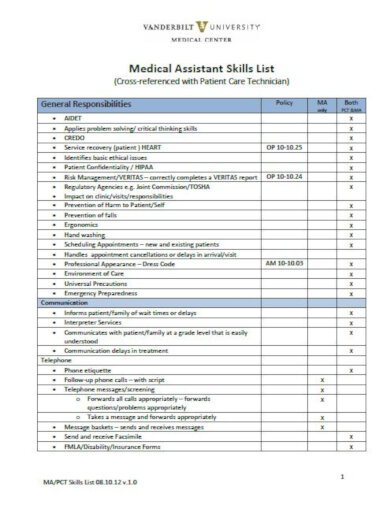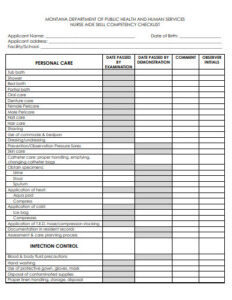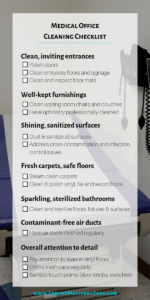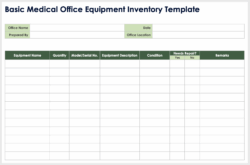Navigating the bustling environment of a medical practice requires a team that is not only dedicated but also exceptionally skilled and consistent in their performance. Medical assistants are the backbone of many healthcare settings, juggling a wide array of responsibilities from patient intake to clinical procedures and administrative tasks. Ensuring every team member, from new hires to seasoned professionals, consistently meets the high standards of care and efficiency is crucial for patient safety, practice reputation, and overall operational success.
This is where a structured approach to evaluating and enhancing skills becomes invaluable. Imagine having a clear, concise tool that helps identify strengths, pinpoint areas for improvement, and ensures everyone is on the same page regarding expectations. That tool is often found in the form of a competency checklist, a systematic way to track and verify the essential skills and knowledge required for the role. It takes the guesswork out of performance evaluations and provides a clear pathway for professional development, making it a cornerstone for any well-managed healthcare facility.
Why a Competency Checklist is Indispensable for Medical Assistants
A robust competency checklist for medical assistants serves as far more than just a bureaucratic hurdle; it is a fundamental tool for maintaining high standards of patient care and operational efficiency. In a field where precision and empathy go hand-in-hand, knowing that every medical assistant is proficient in their duties instills confidence in both staff and patients. It acts as a baseline, ensuring that all team members possess the core skills necessary to perform their roles effectively and safely, directly impacting the quality of service provided.

Furthermore, these checklists play a critical role in standardizing training and onboarding processes. When a new medical assistant joins the team, a well-defined checklist provides a clear roadmap of what they need to learn and master, accelerating their integration into the practice. For existing staff, it offers a regular opportunity for self-assessment and professional development, highlighting areas where additional training or practice might be beneficial. This proactive approach to skill assessment helps prevent errors before they occur and ensures continuous improvement across the board.
Key Areas a Checklist Should Cover
- Clinical Skills: This includes everything from vital sign measurement, assisting with examinations, phlebotomy, administering injections, wound care, and maintaining sterile techniques. It’s about ensuring hands-on procedures are performed accurately and safely, adhering to all protocols.
- Administrative Duties: Covering tasks like scheduling appointments, managing patient records, handling insurance verification, processing referrals, and maintaining inventory. These skills ensure the smooth operation of the front office and efficient patient flow.
- Communication and Professionalism: Encompassing effective patient communication, active listening, teamwork, adherence to ethical guidelines, maintaining patient confidentiality (HIPAA), and conflict resolution. These soft skills are vital for building trust and fostering a positive environment.
Having a comprehensive medical assistant competency checklist template helps managers and supervisors objectively evaluate performance, providing concrete feedback rather than relying on subjective observations. This fosters a culture of transparency and continuous learning, where individuals understand what is expected of them and how they can achieve excellence. It turns evaluations into constructive conversations focused on growth.
Ultimately, the goal is to empower medical assistants to be the best they can be, contributing positively to patient outcomes and the overall success of the practice. By systematically reviewing competencies, practices can identify training gaps, allocate resources more effectively, and ensure that their entire team is equipped to handle the demands of their challenging and rewarding profession. It’s about building a competent, confident, and consistent workforce.
Crafting Your Own Effective Medical Assistant Competency Checklist Template
Creating a medical assistant competency checklist template that truly fits your practice’s unique needs can seem daunting, but it’s an incredibly rewarding process that pays dividends in efficiency and quality of care. The key is to make it specific, measurable, achievable, relevant, and time-bound – often referred to as SMART criteria. Start by gathering input from experienced medical assistants, physicians, and practice managers to ensure all critical aspects of the role are covered, from routine tasks to emergency protocols. This collaborative approach ensures the checklist is comprehensive and practical.
Consider breaking down competencies into clear, actionable items rather than broad categories. For example, instead of just “patient communication,” you might include “explains procedures clearly to patients” or “addresses patient concerns empathetically.” This level of detail provides clearer guidance for both the person being evaluated and the evaluator, minimizing ambiguity and making the assessment more objective. Remember, the more precise your criteria, the more effective your checklist will be in identifying specific areas for development.
- Identify Core Competencies: Pinpoint the absolute essential skills and knowledge required for every medical assistant in your practice. Think about the most frequent and critical tasks they perform daily.
- Define Performance Standards: For each competency, clearly state what successful performance looks like. Is it completion within a certain timeframe, adherence to specific safety protocols, or a particular level of accuracy?
- Include Assessment Criteria: Determine how each competency will be evaluated. Will it be direct observation, a demonstration, a written test, or a combination? Clearly outline the scoring or rating system.
Regular review and revision of your medical assistant competency checklist template are also essential. Healthcare is an evolving field, with new technologies, procedures, and regulations constantly emerging. What was a core competency five years ago might have been replaced or modified today. Schedule annual or bi-annual reviews with your team to update the checklist, ensuring it remains relevant and reflective of current best practices and the specific demands of your clinic.
By investing time in developing and maintaining a robust competency checklist, your practice can foster a culture of excellence, continuous learning, and accountability. It becomes a foundational element for staff development, ensuring that your medical assistants are not only meeting but exceeding the expectations of their vital role. This structured approach helps in building a highly skilled and confident team, ready to provide exceptional patient care every day.
Ultimately, having a well-structured system for evaluating and enhancing medical assistant skills is more than just good practice; it’s a testament to a practice’s commitment to quality. It ensures that every team member understands their responsibilities and has the support to grow and excel. This dedication to professional development and skill verification directly translates into better patient experiences and a more efficient, harmonious work environment for everyone involved.



